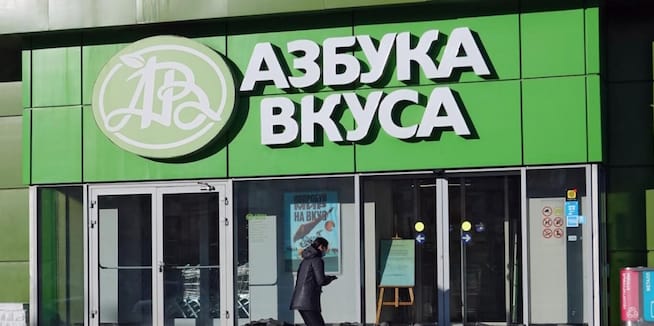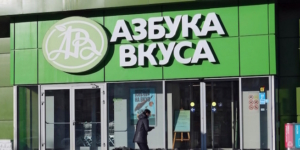
Russia’s Amazon? Yandex in talks to acquire major grocery store chain Azbuka Vkusa

The ‘Russian Google’ might be turning into the ‘Russian Amazon’. Last week it emerged that IT giant Yandex was in talks to buy premium grocery store chain Azbuka Vkusa, which is a symbol of affluent Moscow living. It was The Bell that first reported Yandex’s flirtation with offline retail, a move that market insiders compared to Amazon’s 2017 purchase of grocery store chain Whole Foods.
- There is some truth to comparisons between Yandex and Google. Since Yandex was founded in 1997, it has earned the bulk of its money from search engine advertising. However, for several years it has been actively investing in other areas – particularly food tech and e-commerce. For the first time, advertising revenue made up less than half of Yandex’s income this year.
- Retail is Yandex’s focus at the moment, prompting comparisons with Amazon. Recently, Yandex announced it wanted to become one of Russia’s top three retailers.
- Azbuka Vkusa is a premium grocery store based in Moscow and the surrounding region. Its products are expensive and an Azbuka Vkusa platinum card is something of a status symbol for Muscovites. The company prides itself on being a seller of ‘European’ products, but a 2014 embargo on food imports from the West and falling salaries halted previously rapid growth. Now, analysts value Azbuka Vkusa at $300 million (excluding debt).
- So why does Yandex need a high-end grocery store chain? For two years, the company has been experimenting with the delivery of groceries and ready-to-eat food. Its Yandex.Lavka service is already very popular in Moscow (in the last three months of 2020 it generated about $55 million in revenue) and is actively looking to expand in other big cities. Yandex also wants to export the Yandex.Lavka concept abroad, with similar services slated to open in London and Paris.
- There are obvious synergies between Azbuka Vkusa and Yandex.Lavka. Both companies work in the premium market, and Azbuka Vkusa is historically strong in the prepared food market (that Yandex.Lavka is actively targeting). In addition, a merger could reduce purchasing costs for Yandex.Lavka as it takes advantage of economies of scale.
- “Yandex is trying to determine its place in the market: search engines and taxis are established businesses, but the rest has an experimental feel. That includes the grocery segment, in which it is impossible to succeed without detailed knowledge of the sector,” said Alexei Krivoshapko, a retail analyst at Prosperity Capital Management. “After getting a foot in the door with Lavka, now Yandex is putting its shoulder in with the purchase of a niche premium player.”
- However, Azbuka Vkusa and Yandex share something beyond an interest in the premium market: they have a shareholder in common. Last year, billionaire Roman Abramovich’s asset management company Millhouse Capital acquired a minority stake in Yandex. Abramovich and his partners also own more than 40 percent of Azbuka Vkusa.
Why the world should care: The rapid delivery of food and groceries (within 15-20 minutes of ordering) is the next big goal for e-commerce. Yandex has been one of the first major companies to engage with this fast delivery revolution, but there is still a long way to go to make it a reality in Russia.




